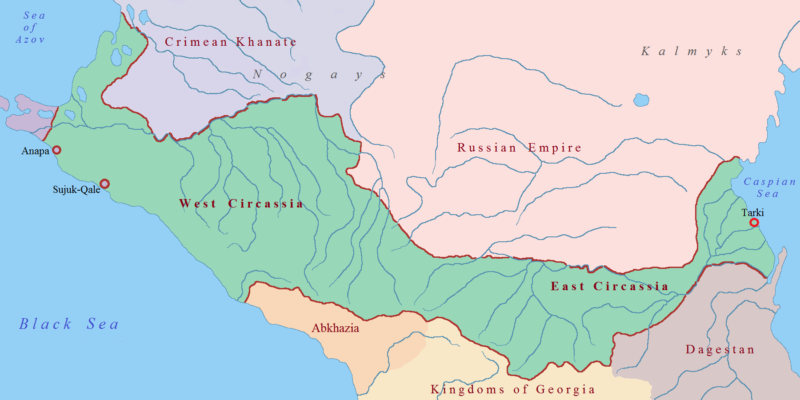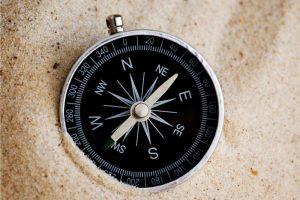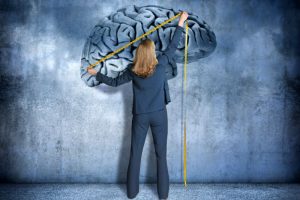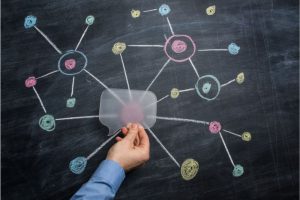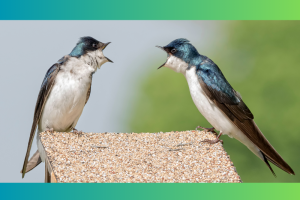Where My Journey Began
My earliest memory is one of my most vivid. It was the first time I met my grandfather. It was the early 1980s, and I was in Damascus, Syria. I was the first-born child in our family. For the occasion, my mother decided to take my newborn brother and me to visit our extended family.
I was probably around three or four years old at the time…My mother, brother, and I stayed with my father’s sister, and my family had prepared a big meal to celebrate the visit of my father’s first-born: me. To this day, I remember every detail of the house and the dinner party. I remember the faces of every relative who showered me with love and affection. There is only one glaring omission: I have no memory of anything that anyone said to me.

That’s not because there’s a blank in my mind. It’s because I had no understanding of the Circassian and Arabic words that were spoken. In later years, I traveled back to visit my relatives in Syria, and on each occasion, I spent as much time with my grandfather as possible.
This man, with his kind smile and tired eyes, showered me with kind words. He passed down the stories, traditions, and knowledge of our ancestors. All their collective wisdom passed from his memory, through his mouth, and into my ears. And the moment they hit my ears, they were lost.
I could not understand a word he said…
My Multi-Lingual Ancestry
I was born in San Jose, California on September 2, 1977. It was a Friday. My mother and father had been in the country for almost a decade at that point, though they’d only been married for a year or two prior to my birth. I was their first-born, first son, and the first natural-born American in the family.
My parents immigrated to the United States as refugees in 1967. I guess you could say I was a third-generation refugee. I’m the first person in my family in almost 200 years to be born, grow up, and live in the same country, speaking the same language for my entire life.
My mother and father were born in the Golan Heights, though at the time the Golan Heights was located in the “French Mandate of Syria and Lebanon.” The Syrian Republic wasn’t formed until 1946. After a short union and separation from Egypt, the Syrian Republic adopted its current formal name, the Syrian Arab Republic. As far as we know, my grandparents were born in the same region, though at the time of their births, the region was under the rule of the Ottoman Empire.
It was the same land, but in my grandparents’ time, the Turkish language was more prominent than Arabic, and Hebrew was commonly spoken in many Jewish villages.
Their parents, my great-grandparents, were born in what is now the Russian Federation. But, at the time of their births, the region was called Circassia. (the Russian Empire incorporated Circassia in stages, beginning in 1763 and ending in 1864.)
When my great-grandparents were born, the dominant languages were Circassian and Abkhaz, and very few local people knew Russian. By the time they left for Syria, Russian was the dominant language. With each generation, and with each region, the patterns were similar: the same land and mix of people but different languages over time.
Growing up in the United States, I often wondered whether this country would eventually stop speaking English and switch to some other language. I wondered when it would be my time to leave and go to some other place, where I’d have to learn a new culture and language.
I had no idea that the war and revolution had shaped my family experience. The logic of children shapes their perceptions.
Circassian: An Endangered Language in Peril
For each of the generations listed above, and for countless generations prior, my family and ancestors had always spoken their ethnic language: Circassian.
Sure, my parents spoke Arabic and English. Of course, my grandparents knew Turkish and a bit of Hebrew. My great-grandparents probably picked up a fair amount of Russian before they emigrated to the Middle East. They all spoke several languages along with our ethnic language, but that 200-year-old tradition ended with me.
As a child, I often heard the sounds of Arabic and Circassian. I often heard family, friends, and extended relatives speaking in Turkish, Russian, and occasionally Hebrew. But I never spoke anything other than English as a child.
While ethnic Circassians may be rare in this world, my experience of losing my ancestral language in the modern world is more common than you might think…
In this increasingly globalized world, several languages die every few weeks. Among the world’s estimated 5,000 languages, most experts believe half will die off in the next few decades.
Of course, as a child, I didn’t understand any of this. Even if I had, I’m not sure I would have cared. I just wanted to play with my toys and play with my friends.
Language Can Have You Feeling Like an Outsider
As I continued to grow up in the United States, my life was probably very much like that of most children of immigrants. But there was always a secret, hidden part of my life. Every time I was at a family gathering, I would lean in toward our elders, straining my ears until I was sure they would bleed.
If only I listened harder, concentrated, and focused, those ancient Circassian words would make sense to me…They must make sense to me. Mustn’t they? For hundreds of years (perhaps thousands) my ancestors spoke this language. And they never had a written form of the language. None of them ever went to schools or opened books or watched movies in the language either.
And yet they all spoke it.
In fact, people know my father to be a very eloquent, gifted speaker of the language. Certainly, the ability to decipher those odd sounds must lie in my DNA – but I couldn’t do it.
So, I thought that I must have some kind of auditory, cognitive, or genetic defect…

Maybe I was adopted?
No… I’m the spitting image of my father, and could easily pass for him in his younger pictures.
And yet, there I was… at each family gathering, the sounds of the words that flowed in their conversations were familiar and even comforting, but I couldn’t understand what they said.
My Language Learning Nightmare
It was like living a dream, except over time, this dream became my nightmare. This trapped me in a situation, leaving me with no idea how to escape. For whatever reason, I could never pick up more than the most basic of vocabulary. My ability to speak was practically non-existent, and my comprehension wasn’t much better. This was a huge barrier between most of my family and me.
My family elders didn’t speak English very well, so they’d never stopped speaking Circassian. At the same time, none of them could read or write the language. Plus, there were no books or teaching methods I could use to learn it.
For decades, my desire to understand the words and wisdom of my elders and reconnect with our oral traditions and histories fueled me. My attempt to escape this nightmare and achieve the dream of speaking my ethnic language is where this story begins.
For my entire life, the lost words of my now-deceased grandfather have haunted me.
I will never know or understand what he tried to tell me. To this day, I can see his kind smile and tired eyes, and yet I will never recapture his words. The word “haunted” is not strong enough, but despite my fluency in English, I cannot think of a better one.
I can’t go back and change the past, no matter how much I might wish to do so.
But I can help others…
Over the years, I’ve learned how to speak Circassian well enough that I am often mistaken for a native speaker. Along the way, not only did I learn a language – Circassian – I discovered how to learn any language quickly and efficiently.
If you’ve ever dreamed of learning a new language, yearned to reconnect with your roots; or promised yourself that “one day” you’d speak another tongue, then keep reading. Because if I could do it, so can you.



